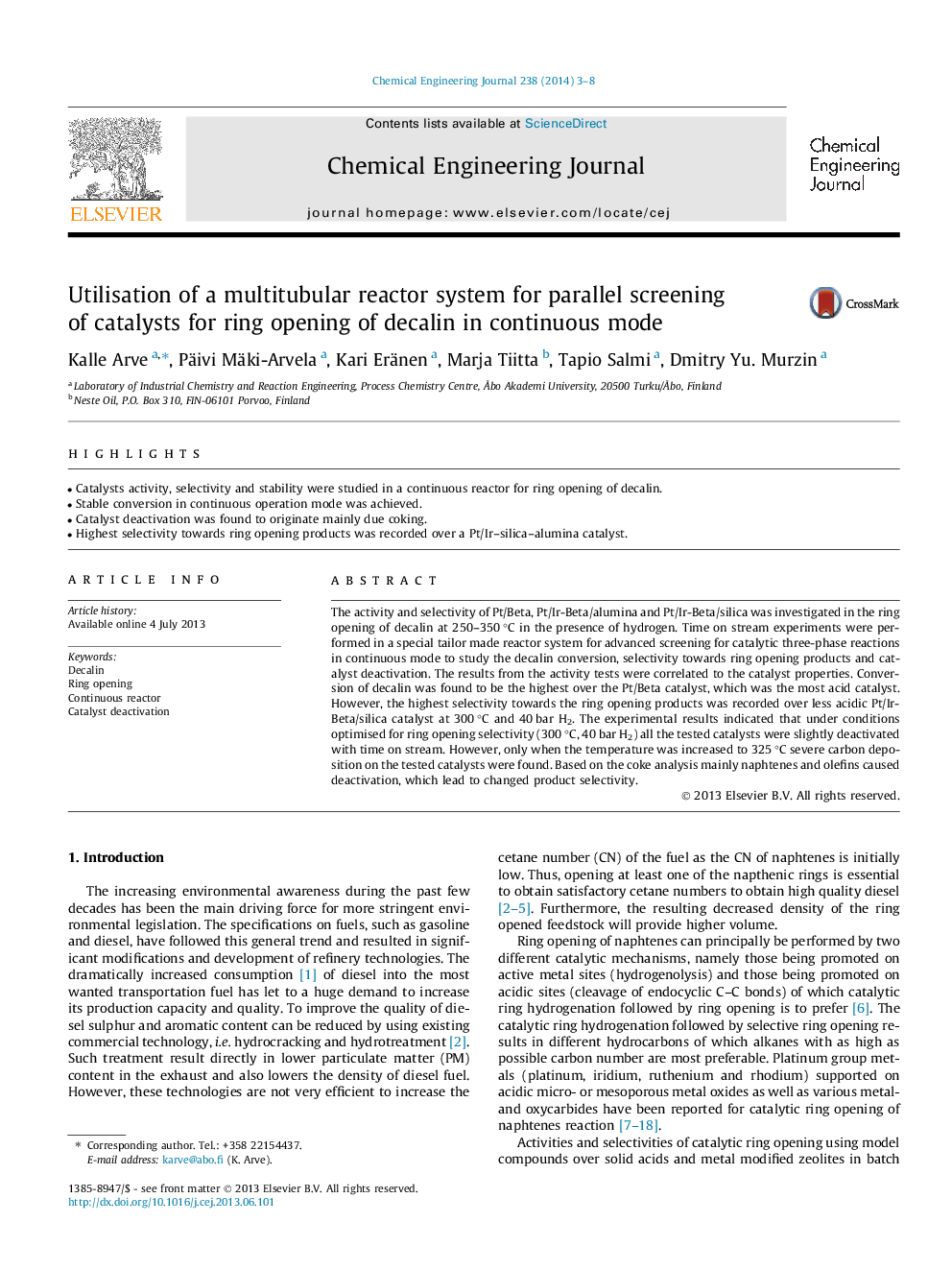| Article ID | Journal | Published Year | Pages | File Type |
|---|---|---|---|---|
| 148030 | Chemical Engineering Journal | 2014 | 6 Pages |
•Catalysts activity, selectivity and stability were studied in a continuous reactor for ring opening of decalin.•Stable conversion in continuous operation mode was achieved.•Catalyst deactivation was found to originate mainly due coking.•Highest selectivity towards ring opening products was recorded over a Pt/Ir–silica–alumina catalyst.
The activity and selectivity of Pt/Beta, Pt/Ir-Beta/alumina and Pt/Ir-Beta/silica was investigated in the ring opening of decalin at 250–350 °C in the presence of hydrogen. Time on stream experiments were performed in a special tailor made reactor system for advanced screening for catalytic three-phase reactions in continuous mode to study the decalin conversion, selectivity towards ring opening products and catalyst deactivation. The results from the activity tests were correlated to the catalyst properties. Conversion of decalin was found to be the highest over the Pt/Beta catalyst, which was the most acid catalyst. However, the highest selectivity towards the ring opening products was recorded over less acidic Pt/Ir-Beta/silica catalyst at 300 °C and 40 bar H2. The experimental results indicated that under conditions optimised for ring opening selectivity (300 °C, 40 bar H2) all the tested catalysts were slightly deactivated with time on stream. However, only when the temperature was increased to 325 °C severe carbon deposition on the tested catalysts were found. Based on the coke analysis mainly naphtenes and olefins caused deactivation, which lead to changed product selectivity.
